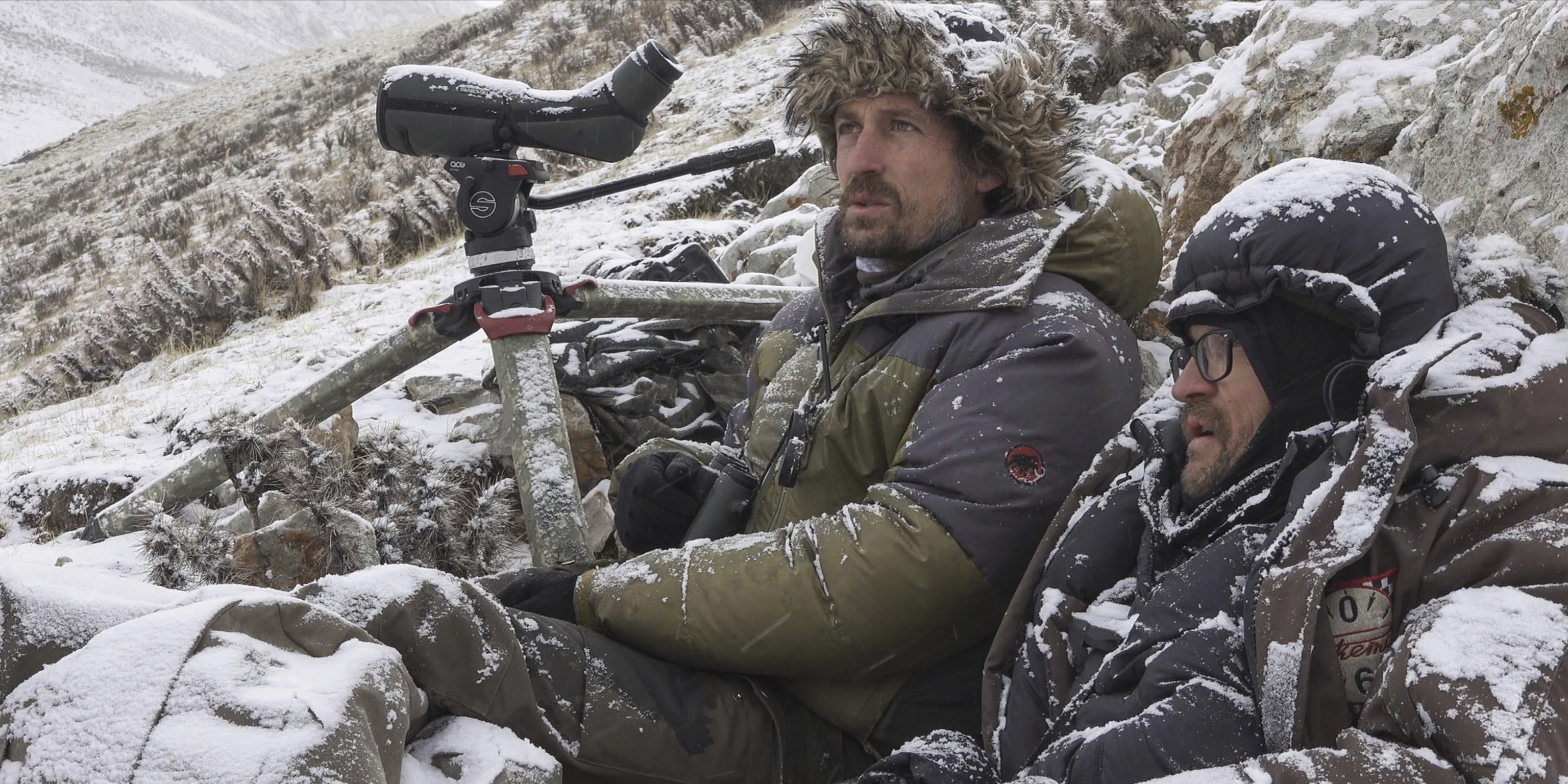Science A GPS to protect the snow leopard
"We do not travel to see but not to see", said Saint John of the Cross, who knows if with his eyes wide open. Or hermetically open. Does a documentary about nature made with tools such as fog, the silence, waiting or the certainty of its most intimate impossibility? "The wildness of an animal free in nature is, by definition, uncapturable, a mystery. A documentary about nature is in a certain way a contradiction," comments the photographer and documentary filmmaker
Vincent Munier
with the same euphoria as undisguised discomfort.
And he continues: «I don't like those nature documentaries that teach everything shamelessly.
I hate that indiscriminate use of the drone to shoot.
I prefer the eroticism of the barely insinuated image to the shamelessness of pornography that teaches everything».
The speaker, to situate ourselves, is one of the most renowned photographers specializing in nature and an occasional documentary filmmaker.
His works live precisely in the paradox of showing exactly the moment in which civilization and even reality lose their footing.
His latest film -an inexplicable success in France (Cesar Award for best documentary and more than 600,000 viewers) which opens in Spain on Friday- is perhaps the quintessence of his way of understanding the world, nature and the picture.
snow leopard
It is the story of a search, of the search for the most mysterious of felines because it is elusive, ghostly, and unique.
And it is fair, therefore, that the film that portrays him is to the same extent a calculated praise of slowness, patience, silence and, above all, beauty, a white and dense beauty that surely Saint himself Juan de la Cruz would embrace with passion;
with blind passion
Munier says that it all started when he was just a child.
In the French Vosges he fell in love with the possibility of stopping time and space in a photograph at just 10 years old.
“I put school aside and dedicated myself as soon as I could to traveling.
The more inhospitable and distant the destination, the better », he says.
And so on until the meaning of his life coincides with the very meaning of the most inaccessible of animals.
Up to six times in the last ten years he has traveled to Tibet, always
behind that animal that in its perfect silence doesn't even roar.
The
Panthera uncia
, as it is called for the academy, is the most invisible of the eight big cats that walk the Earth.
With thick fur, tiny ears, wide legs so as not to sink into the snow, and a long, bushy tail that helps it keep its balance when it jumps, this skittish animal that never attacks man was discovered in 1778, then removed from books when it was confused with the clouded leopard and finally rediscovered as the unique species that it is in 1864.
Vincent Munier and Sylvain Tesson in a moment from 'The Snow Leopard'. WORLD
The film pairs Munier with writer and traveler
Sylvain Tesson
on screen under the direction of Marie Amiguet.
Before the film, each one separately published their own Tibetan adventure, which is also theirs.
Both texts with the same title as the documentary itself are published in Spanish (Errata Naturae and Taurus).
«During the first trips I did not see the panther.
I only managed to locate some trace, the footprints”, recalls Munier making his own the experience of the myth bible signed by
Peter Matthiessen.
That of the American was a chronicle built entirely on absence, on the flash of an insomniac dream.
He never got to see it.
“But it was thanks to that search by uncertain force that I discovered the nature in which the leopard lives in a much clearer way,” he says.
“My only endeavor”, reasons the photographer, “is to share the beauty of the wild world.
If you will, it is an act of love with nature and with the audience itself.
The panther is just an excuse."
And he continues: «What horrifies me the most is turning the film into another object of consumption.
I hate movies that in the end are simply an incentive for tourism.
I know that there are organized excursions.
You pay and you are guaranteed to see a leopard.
It's terrible when everything becomes one more excuse for consumption.
Munier is convinced that it is a mistake to think that we have to save the planet, as the hasty slogans warn.
“No, what we have to save is man and be aware that we are part of nature.
We have to stop the deterioration of the environment for the simple and elementary sense of survival.
The pandemic has made it clear to what extent nature is part of us.
The snow panther lives all of her stopped in the last image.
The silhouette against the mountains of a wild animal, free, silent.
Just a ghost.
"I am the true son of the snowy mountains / the lonely watchman who crosses time..."
, says a poem by the Chinese poet Jidi Majia that Munier makes his own.
And even Saint John of the Cross himself.
Conforms to The Trust Project criteria
Know more
France
cinema

